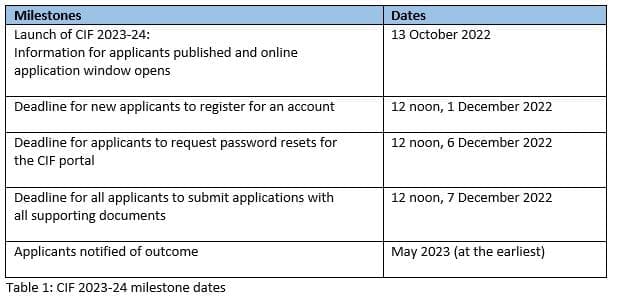Building & Project Consultancy, Company News
New guidance released by The Department for Education for CIF Applications
New guidance has now been released by the Department of Education for CIF applications to be submitted for the 2023–24 funding round. There is additional focus on energy-efficient heating systems to replace coal and oil systems, together with improved ventilation.
The following provides a summary of changes and key milestone dates to meet.
New for CIF 2023-24
New priority project type: critical replacement of coal and oil boilers with low-carbon heating systems
CIF’s new Priority Project Type will include projects for replacing expired oil and coal boilers with low-carbon alternatives to prevent school closure (see the boiler and heating systems section and the Project Need assessment criteria).
Please note: Project Need is still the most important element for assessment, and we will continue to prioritise projects which demonstrate high-condition need.
Options appraisal
Where applicable, the options appraisal should include consideration of a zero-carbon, low-carbon, or sustainable replacement option (see the project planning assessment criteria) Environmental sustainability and energy efficiency across the school estate.
The Environmental Sustainability statement criterion has been updated this year
A statement and evidence should be submitted to demonstrate that schools have performed, or will be performing, works that lead to greater environmental sustainability within the CIF project or elsewhere across the school estate.
The DfE have published a strategy for sustainability and climate change, which includes information on what the department’s future plans are for the school estate.
Applicants will also be able to use their potential CIF funding as the mandatory contribution towards an application to the Public Sector Decarbonisation Scheme (PSDS).
See the sustainability section for further information.
Ventilation
You will be required to consider the adverse impact on broader ventilation in relation to your
CIF project. The portal form includes a section to confirm you have considered this. The Health and Safety Executive (HSE) provides guidance on how to assess and improve ventilation in line with health and safety requirements under Workplace (Health, Safety and Welfare) Regulations 1992. There is further information on actions employers can take to reduce the spread of respiratory infections in the workplace. Detailed COVID-19-specific guidance for workplaces and public buildings is provided by the Chartered Institute of Building Services Engineers (CIBSE) for those who wish to put additional measures in place.
Removal of the funding agreement bonus point from assessment
We have removed the funding agreement bonus point from the assessment criteria. Applicants will no longer need to enter the date their funding agreement was signed in the application form.
Removal of the weightings in the assessment of Project Need for expansion projects
We have removed the weightings from the Project Need assessment for expansion projects. Projects will score up to 60 points in this section.
Threshold flexibilities for condition projects
To utilise CIF funding more effectively, we may fund those projects with the highest policy priority that achieve a score immediately below the success threshold. The highest-priority project types are listed in table 4. See the assessment criteria section for more details.
Please note: Applications will only be considered for this if the assessor has determined the project falls into this category.
Milestone dates for CIF 2023–24

For further information about CIF, Urgent Capital Support and the latest updates, please refer to the CIF web page at: Condition Improvement Fund, GOV.UK (www.gov.uk).
Roger Hannah education team are here to help you in this process, to maximise project value and to achieve best results in CIF application with our proven track record. Please contact Neil O’Brien, BSc. (Hons) IMAPS MRICS, on 07816 672 322 or neilobrien@roger-hannah.co.uk





